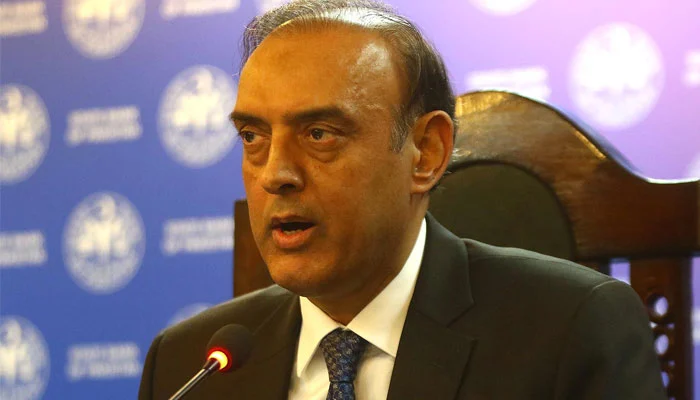- Forex held by SBP stands at $3.1bn after increase of $276m.
- Pakistani authorities hoping to strike agreement next week.
- Sources say IMF pressing hard on gross forex target.
ISLAMABAD: The International Monetary Fund (IMF) and State Bank of Pakistan (SBP) held a round of talks about the possibility of further tightening of monetary policy and building up foreign exchange reserves for the end of June 2023, The News reported Saturday.
Pakistan’s foreign exchange reserves, held by the SBP, stood at $3.1 billion after it went up by $276 million till February 10, 2023.
This was mainly because of improved liquidity in the market after narrowing down differences between the inter-bank and open markets after allowing adjustments of the exchange rate.
Keeping in view the IMF’s prescriptions to jack up the foreign exchange reserves up to $12 billion till end June 2023, Pakistan will have to secure at least $17-18 billion in four-and-a-half months. It included external debt repayment requirement of $5 billion, financing of current account deficit (CAD) of $3-4 billion and $8-9 billion for building up the foreign exchange reserves till June 30, 2023.
If Pakistan’s wish list is accepted by the IMF, it requires dollar inflows of $11-12 billion for meeting foreign debt servicing, financing of CAD and building up of foreign exchange reserves up to $6-$7 billion by end of June 2023.
The IMF has also asked the SBP for jacking up the policy rate by 300 to 400 basis points in order to move towards the interest rate from a negative to a positive trajectory.
But the SBP officials made it clear that the independent Monetary Policy Committee (MPC) was established under the SBP’s Amendment Act, and the forum was empowered to take a decision keeping in view the macroeconomic fundamentals.
A senior official of the finance ministry told The News on Friday that the Pakistani side was asking the IMF review mission to strike the staff level agreement (SLA) next week before the IMF’s executive board meeting, expected in four to six weeks.
The Pakistani authorities are still hoping for striking a staff-level agreement next week, but a gap still existed on a projection of the external financing front.
One senior official conceded that Pakistan undertook tough and bold decisions by increasing electricity and gas tariffs and slapping Rs170 billion in taxes through a mini-budget. The exchange rate was brought to market-based and the POL [petrol, oil, lubricants] prices surged.
Taking all these steps was in the hands of Pakistani authorities, but now the most critical steps remained unresolved on account of securing confirmation from all multilateral and bilateral creditors for meeting the yawning external financing requirements during the programme period. The IMF programme of EFF would expire on June 30, 2023, and there is no possibility to grant any further extension in it.
“The IMF is pressing hard on gross foreign exchange reserves target up to $11-$12 billion till the end of June 2023. However, the Pakistani side is asking for fixing gross foreign exchange reserves less than double digit in the range of $6 to $8 billion, keeping in view the possibility of reduced confirmation from bilateral partners,” said official sources, who are privy to the developments on the ongoing virtual parleys with the IMF mission for moving towards the signing of staff level agreement.
Both sides have agreed that there was no possibility to touch gross foreign exchange reserves position up to $16.2 billion till the end of June 2023, as sought on the occasion of finalising the 7th and 8th reviews under the $6.5 billion EFF arrangement.
Now the Pakistani side wants a 50% reduction in fixing the target for the end of the program period, but the IMF is insisting on seeking confirmation from all possible avenues.
Finance Minister Ishaq Dar, who is currently visiting Dubai, has been running from pillar to post to seeking confirmation from multilateral, bilateral creditors and commercial banks in order to muster up the required dollar inflows support for securing approval from the IMF for the revival of the stalled programme.
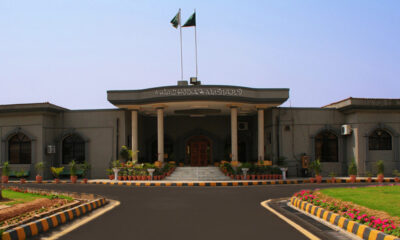
 Latest News2 days ago
Latest News2 days ago
 Latest News1 day ago
Latest News1 day ago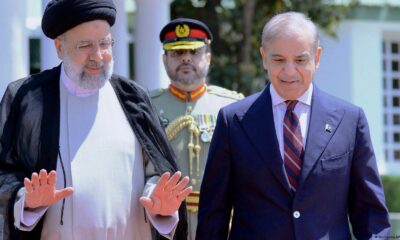
 Latest News1 day ago
Latest News1 day ago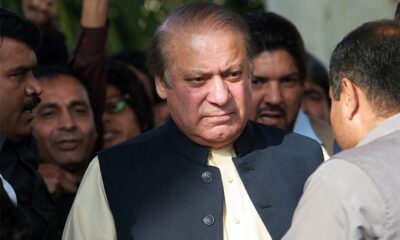
 Latest News2 days ago
Latest News2 days ago
 Latest News1 day ago
Latest News1 day ago
 Latest News2 days ago
Latest News2 days ago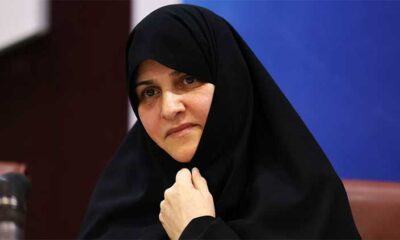
 Education2 days ago
Education2 days ago
 Latest News2 days ago
Latest News2 days ago
